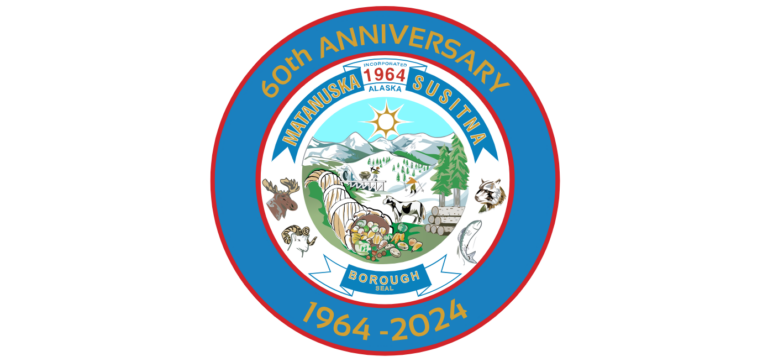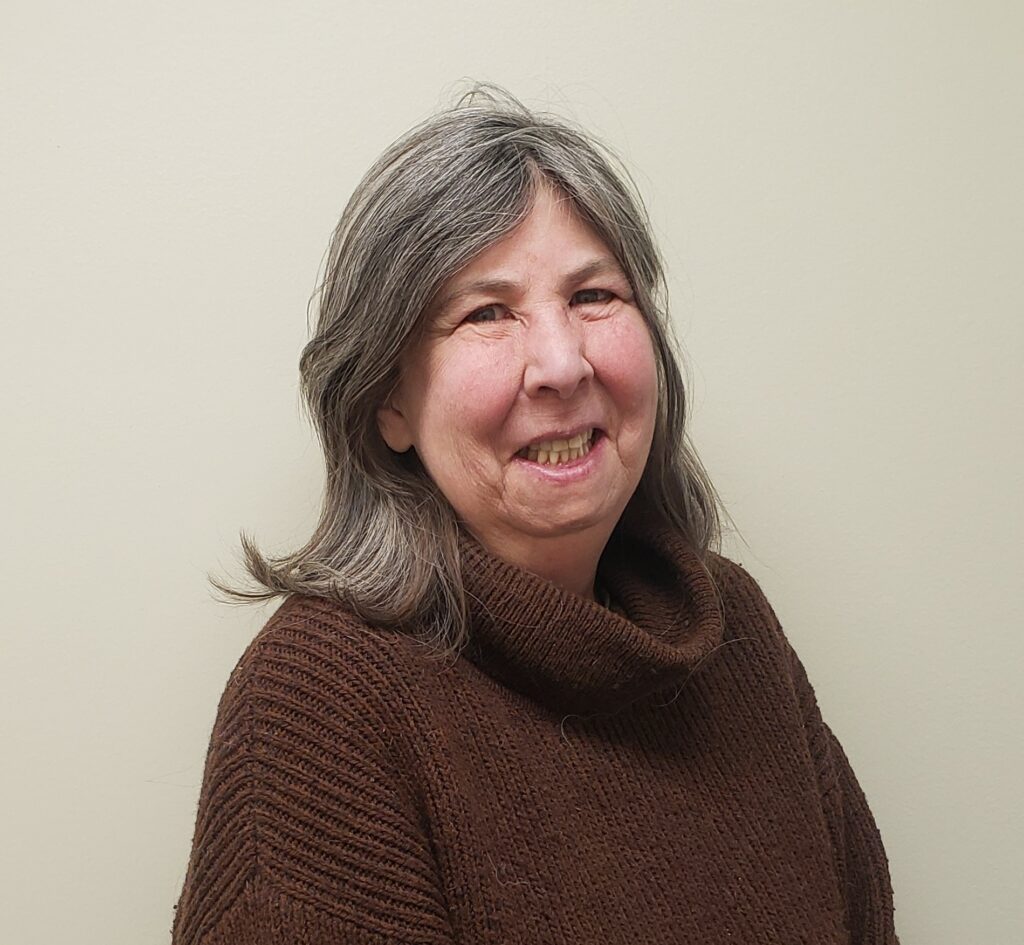
Tell us about yourself.
What is important about “who I am” changes with the audience. For some, it may be important to say that I have a PhD in Environmental Chemistry; for others, that I have been an Alaska resident for about 30 years, or that I was in the commercial fishing industry for several years, or that I work for a Tribe, or that I live without being connected to power and water. Each of these opens and closes doors, and changes someone’s impression of me.
What is important to you about engaging with your local government?
I am entering my third year as a member of my borough’s Fish & Wildlife Commission (FWC). We advise the Borough Assembly on issues that affect fish and wildlife. I felt uncomfortable applying initially as I no longer hunt, trap, or fish, but I ended up fitting in because everybody on the Commission cares about habitat.
What I really enjoy about being on the Commission is we come from all kinds of backgrounds. A member of the Green Party can sit next to someone with an NRA ball cap, a retired regulator can sit next to someone new, and we all work together for the benefit of fish and wildlife.

What did you do?
Recently a court order forced a national regulatory body – the National Marine Fisheries Service (NMFS) to develop a plan to manage salmon fishing in federal waters within Cook Inlet, previously managed by the state of Alaska. The North Pacific Fishery Management Council (NPFMC), which makes recommendations to NMFS on managing federal fisheries, met in Seattle in February so that both of their committees (Scientific and Advisory) and the full Council could take up the Cook Inlet issue.
The FWC was very concerned about what the NPFMC would advise, because all the salmon that come to our borough come through the federal zone in Cook Inlet. Since 2011 State regulators have restricted fishing for two weeks in the summer so salmon could move north to the borough’s streams. The NMFS was proposing to double fishing time in the zone during those two weeks, which would impact “personal use” (dipnetting), a small commercial fishery, sportfishing, as well as whales and the ecosystem. They were also proposing very high “allowable catch” limits for each salmon species.
Two of us in the FWC flew to Seattle to testify. I testified in front of the Science Committee, and the other commissioner testified in front of the Advisory Panel and the full Council. Our ask was simple: don’t double the fishing time in late July. Too late we learned that these bodies were only meeting to determine how much of each salmon species they would recommend as a “catch limit”. I had actually worked through a lot of the relevant data, and I scrambled to testify that the Council should reduce the catch limit, providing my analysis. I testified as a citizen, not a commissioner, because I had not had time to get approval from the rest of the commission.
What happened then?
The Council actually did agree with my recommendation, and put it in as part of the motion to be voted on that the catch limits would be much lower and much more in line with recent harvest years than the original NMFS and Science Council recommendations. This was the only motion they considered on the entire Cook Inlet salmon fishery issue, and on February 11th the vote failed 5 to 6.
Now it goes back to NMFS with the original high catch and doubled fishing time recommendations. The NPFMC has a meeting in April, and there is a court-ordered May 1 deadline for a plan to be published in the Federal Register. I am still not clear on whether the NPFMC needs to make the decision or if it is now up to the Department of Commerce, which NMFS is under.
What did you get out of this experience?
I thought I had learned the importance of “know your Ask”, but we weren’t familiar with this process, and we should have done more homework when approaching an entirely new part of government. I’m not sure that we would have been more effective, but I do think it is important to make sure you are asking for something the body can actually act on. There are always staff at these bodies that can help with the process, and sometimes the best option is to pick up the phone and call them. I am also learning more about how different regulatory bodies intersect; the multi-agency NPFMC, the federal NMFS, the state Board of Fisheries and the borough.
Despite this the learning curve hasn’t scared me off from local Government and the FWC has appointed me to be their representative on another advisory body (on water bodies, not fish). I’m re-learning that the only downside to being useful is you might be too useful – it can be hard to keep up a 40-hour per week job alongside everything else.